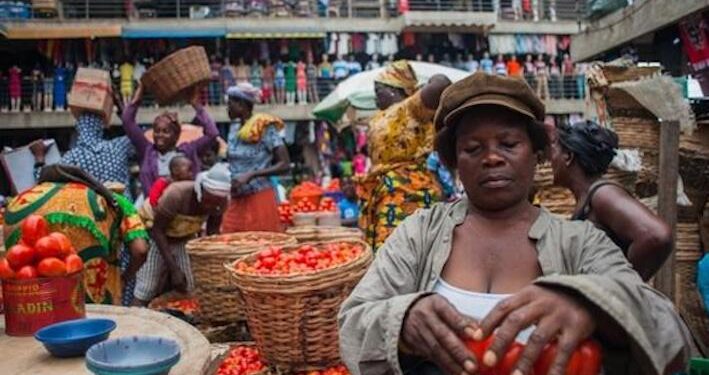According to the World Bank, Nigeria’s persistent fiscal deficit has worsened the country’s public debt stock, with 96.3% of government revenue spent on debt service in 2022.
According to the Macro Poverty Outlook for Nigeria: April 2023 report published by the bank, this is the case.
“The fiscal situation worsened. In 2022, the cost of the petrol subsidy rose from 0.7% of GDP to 2.3% of GDP. Low non-oil revenues and substantial interest payments exacerbated fiscal strains. The fiscal deficit was estimated to be 5.0% of GDP in 2022, exceeding the stipulated limit of 3.0% for the federal government. This has kept the public debt stock above 38% of GDP and increased the debt service to revenue ratio from 83.2% in 2021 to 96.3% in 2022, according to the report.
The bank also stated that the cash shortage caused by the CBN’s re-design of the naira hampered the country’s economic development and efforts to reduce poverty, and that approximately 13 million Nigerians would fall into poverty between 2019 and 2025.
It stated, “Nigeria is in a more precarious position than before the global oil price boom in late 2021.” In the context of the Naira redesign, cash scarcity has had a further impact on economic growth and poverty reduction. Between 2023 and 2025, the economy is projected to develop by an average of 2.9% per year, which is only slightly above the population growth rate of 2.4%. The expansion will be driven by services, commerce, and manufacturing. It is anticipated that oil production will remain subdued due in part to inefficiency and insecurity.
The number of Nigerians living below the national poverty line will increase by 13 million between 2019 and 2025, according to the baseline projection, as population growth continues to outpace poverty reduction and inflation remains elevated.
The worsening economic climate in the country, according to the World Bank, has driven millions of Nigerians into poverty.
The brief stated, “Historically, oil price increases have bolstered Nigeria’s economy, but this has not been the case since 2021. In contrast, macroeconomic stability has deteriorated due to declining oil production, costly fuel subsidies, exchange rate distortions, and fiscal deficit monetisation. The worsening economic climate has left millions of Nigerians in destitution. Due to the absence of macro-financial reforms, the demonetization of the naira, and an ambiguous external outlook, risks are tilted to the downside.”
In addition, the Washington-based bank noted that macroeconomic stability has deteriorated significantly due to multiple FX rates, high and rising inflation, increasing fiscal pressures, and diminishing forex reserves.
Since 2015, Nigeria’s fiscal position has deteriorated due to declining oil revenues and rising expenditures, resulting in persistently high fiscal deficits, according to the report.
According to the bank, Nigeria’s chronically high inflation has been on the increase since 2019, particularly for food items, eroding the purchasing power of poor and vulnerable Nigerians and escalating poverty.
Inflation reached a 21-year high of 18.8% in 2022, according to the lending institution, and food inflation is estimated to have driven five million Nigerians into poverty.
It added that multiple FX windows, the central bank’s provision of development finance at subsidised rates, and monetization of the fiscal deficit compromise the country’s monetary policy efficacy.
In addition, the report stated, “Persistent structural economic issues (volatile growth, low private investment, low and inefficient public spending, due to low revenue collection, and low social development outcomes resulting in low productivity) have prevented any meaningful acceleration of growth.” Insecurity remains pervasive, with more violent conflict events occurring across the nation, negatively influencing private investment and economic expansion.”


